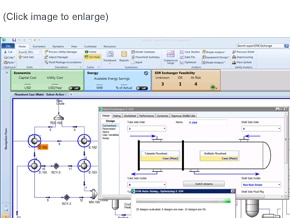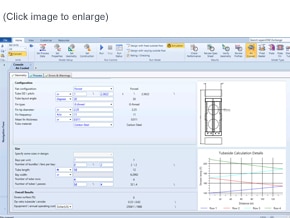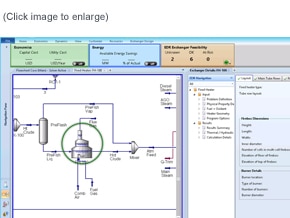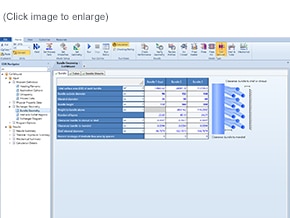
Rigorous Heat Exchanger Models Available in Simulation
With Activated Exchanger Design & Rating in Aspen Plus and Aspen HYSYS, users can specify or size heat exchangers directly from a flowsheet. Rigorous models provide accurate thermal and hydraulic modeling in simulation. Preliminary designs can easily be transferred into Aspen Exchanger Design & Rating for more detailed design—increasing engineering efficiency and streamlining exchanger design.

View training resources for Aspen Exchanger Design & Rating (EDR) products.
AspenTech offers many ways for you to learn how to use Aspen Exchanger Design & Rating (EDR) to achieve your business objectives. Our instructor-led classroom and virtual classes are scheduled globally for your convenience. We also have an extensive E-Learning library which can be accessed from within our products.

Minimize the risk of costly operational problems in Heat Exchangers
With Activated Exchanger Design & Rating in Aspen Plus and Aspen HYSYS, users can easily identify and monitor for excessive operating temperature and pressure, erosion and vibration risks, and more—directly from the flowsheet—making it easy to optimize operational performance.

Design, check-rate, and simulate all TEMA types.
The Aspen Shell & Tube Exchanger designs all major industrial shell & tube exchanger equipment types. It provides cost optimized equipment designs for a given set of process conditions, resulting in typical savings of 10-30% on cost per exchanger. It also handles single phase heating and cooling, boiling and condensing, and thermosiphon reboiling.

Perform mechanical design and rating of exchangers and pressure vessels.
Aspen Shell & Tube Mechanical optimizes the entire design of exchangers, minimizing the thicknesses of all major components. It integrates closely with Aspen Shell & Tube Exchanger, allowing users to optimize both thermal and mechanical requirements efficiently and provides accurate stress calculations conforming to internationally accepted code standards including ASME and others.

Design and simulate air-cooled heat exchangers.
Aspen Air Cooled Exchanger can design, check-rate, and simulate air-cooled and other crossflow heat exchangers for all common process applications, including single phase, condensation, and evaporation. X-side applications include dry air, wet air, or gas mixtures. Air Cooled Exchanger can handle heat recovery as well as process cooling. Additionally, it can optimize both capital and operating costs.

Design and troubleshoot gas- or oil-fired process heaters.
Aspen Fired Heater is a tool for the efficient design of new chemical process, refinery crude and vacuum furnaces. It integrates with Aspen HYSYS for efficient revamp studies for additional convection sources, evaluation of operational efficiency, and flagging of high tube metal temperatures.

Design and operate more efficient compact plate and plate fin heat exchangers.
Aspen Plate Fin Exchanger is the latest generation of thermal design software for multi-stream plate fin heat exchangers. It can be integrated directly in Aspen HYSYS to achieve robust process modeling. Aspen Plate Exchanger lets engineers evaluate plate exchangers as an alternative to shell & tube designs. Access a range of geometries from a number of leading manufacturers to independently evaluate any vendor design.

Reduce energy consumption in cryogenic processes.
Up to 40% of total energy consumption in the LNG process occurs during the refrigeration process. The Aspen Exchanger Design & Rating (Aspen EDR) family is the only solution that models all cryogenic heat exchangers, including coil wound (new in V9.1) and plate fin. By integrating with Aspen HYSYS®, you can now simulate the entire LNG process.

Access Aspen HTFS Research Reports, aspenONE® Exchange and Aspen Properties
Aspen HTFS Research Reports provides all EDR users with online access to: comprehensive references to heat exchanger theory and practice, design procedures used by the Aspen Exchanger Design & Rating thermal suite of products, and over 40 years of HTFS research. aspenONE Exchange in EDR is a one stop shop, wherein users can access entire HTFS Research Network contents, example models, search for Help Contents, access Online training materials, follow latest blogs and discussions and learn about latest product announcements .Access the world’s largest database of pure component and phase equilibrium data for conventional chemicals and electrolytes regularly updated by National Institute of Standards and Technology (NIST).
